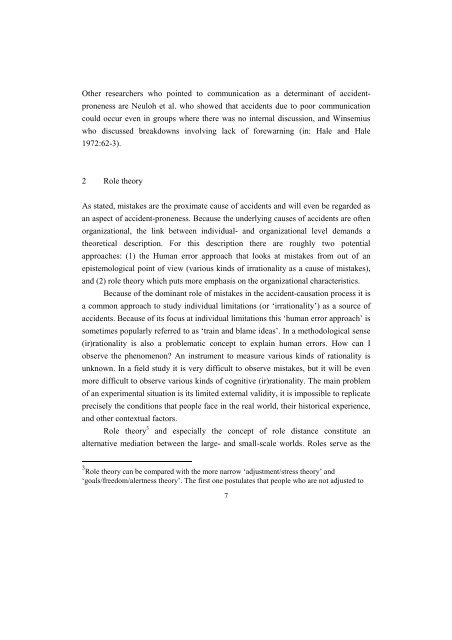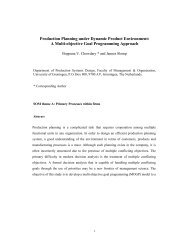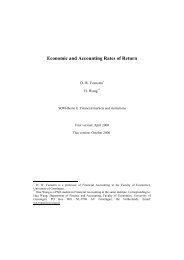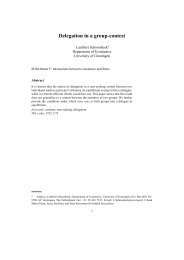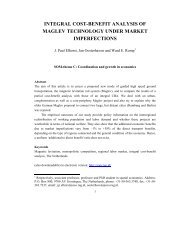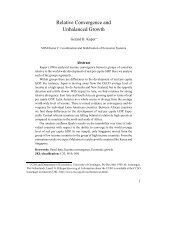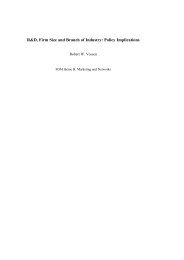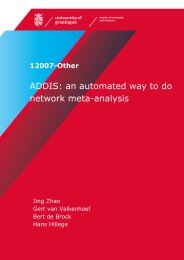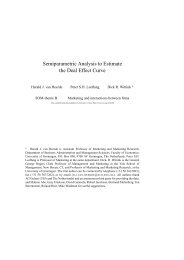Communication and Industrial Accidents - SOM Research Reports
Communication and Industrial Accidents - SOM Research Reports
Communication and Industrial Accidents - SOM Research Reports
Create successful ePaper yourself
Turn your PDF publications into a flip-book with our unique Google optimized e-Paper software.
Other researchers who pointed to communication as a determinant of accidentproneness<br />
are Neuloh et al. who showed that accidents due to poor communication<br />
could occur even in groups where there was no internal discussion, <strong>and</strong> Winsemius<br />
who discussed breakdowns involving lack of forewarning (in: Hale <strong>and</strong> Hale<br />
1972:62-3).<br />
2 Role theory<br />
As stated, mistakes are the proximate cause of accidents <strong>and</strong> will even be regarded as<br />
an aspect of accident-proneness. Because the underlying causes of accidents are often<br />
organizational, the link between individual- <strong>and</strong> organizational level dem<strong>and</strong>s a<br />
theoretical description. For this description there are roughly two potential<br />
approaches: (1) the Human error approach that looks at mistakes from out of an<br />
epistemological point of view (various kinds of irrationality as a cause of mistakes),<br />
<strong>and</strong> (2) role theory which puts more emphasis on the organizational characteristics.<br />
Because of the dominant role of mistakes in the accident-causation process it is<br />
a common approach to study individual limitations (or ‘irrationality’) as a source of<br />
accidents. Because of its focus at individual limitations this ‘human error approach’ is<br />
sometimes popularly referred to as ‘train <strong>and</strong> blame ideas’. In a methodological sense<br />
(ir)rationality is also a problematic concept to explain human errors. How can I<br />
observe the phenomenon? An instrument to measure various kinds of rationality is<br />
unknown. In a field study it is very difficult to observe mistakes, but it will be even<br />
more difficult to observe various kinds of cognitive (ir)rationality. The main problem<br />
of an experimental situation is its limited external validity, it is impossible to replicate<br />
precisely the conditions that people face in the real world, their historical experience,<br />
<strong>and</strong> other contextual factors.<br />
Role theory 3 <strong>and</strong> especially the concept of role distance constitute an<br />
alternative mediation between the large- <strong>and</strong> small-scale worlds. Roles serve as the<br />
3 Role theory can be compared with the more narrow ‘adjustment/stress theory’ <strong>and</strong><br />
‘goals/freedom/alertness theory’. The first one postulates that people who are not adjusted to<br />
7


